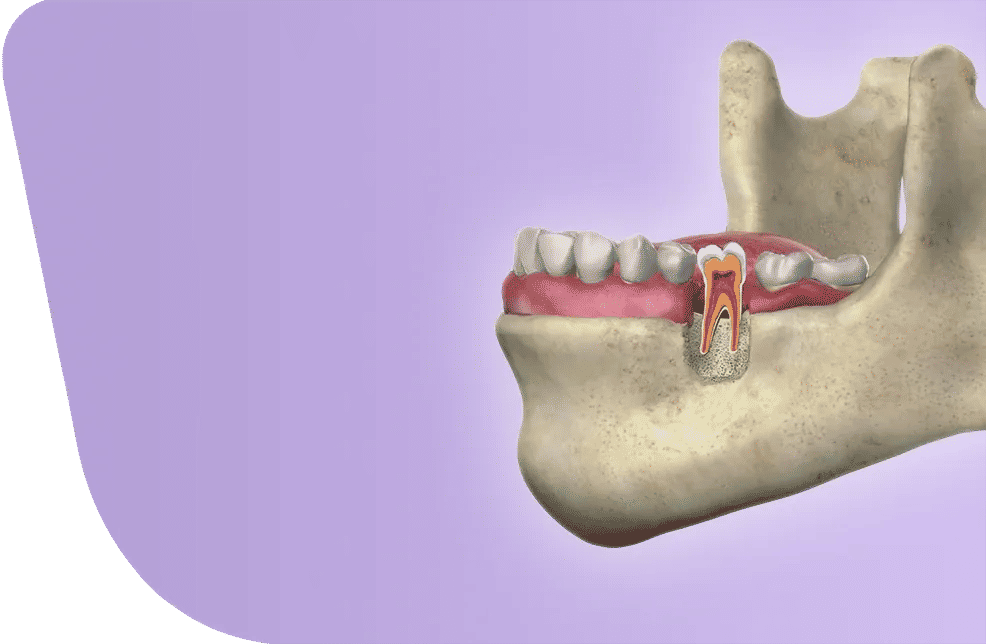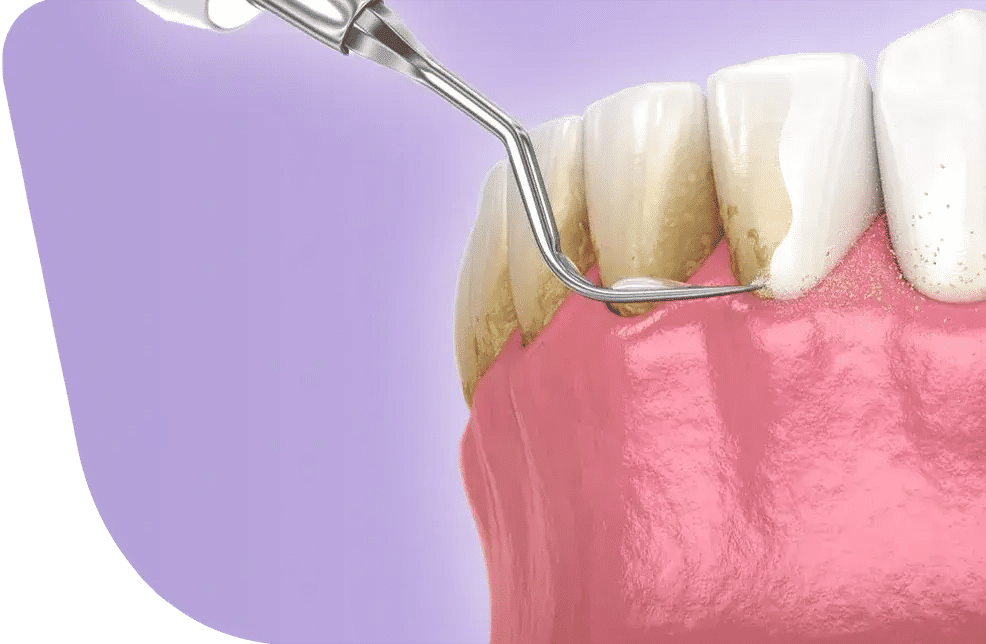- - Dental Implants for Diabetics
- - Are Dental Implants Safe for Diabetics?
- - Risks of Dental Implants for Diabetics Patients
- - Why Should You Control Blood Sugar Before Dental Implants for Diabetics?
- - How to Enhance the Safety and Success of Dental Implants for Diabetics?
- - Types of Dental Implant Procedures for Diabetics
- - Get Safe and Effective Dental Implants for Diabetics at Turkey Luxury Clinics
- - FAQs About Dental Implants for Diabetics
Dental implants are a popular and effective solution for replacing missing teeth, offering both aesthetic and functional benefits. Good overall health is important to ensure the safety and success of the implant procedure and for proper healing.
Patients with chronic conditions that may interfere with healing should assess their eligibility for dental implants—so, is dental implants for diabetics a good option?
Yes, dental implants can be a safe and effective tooth replacement option for many people with diabetes, provided their condition is well-controlled and their oral hygiene is excellent.
However, a skilled dental surgeon, diligent oral hygiene, proper aftercare, and careful management of blood sugar levels are all essential for a safe and successful dental implant outcome.
Discover safety vs. risks of dental implant for diabetics, what is recommended for diabetics with missing teeth and what types of implants are common for them.
For expert care and personalized guidance, contact Turkey Luxury Clinics to explore your dental implant options today.
Dental Implants for Diabetics
Dental implants for diabetics are one of the best options that provide a stable, fixed and permanent solution for replacing missing teeth, supporting comfortable eating and making it easier to maintain proper nutrition—especially important for elderly patients with diabetes.
In fact, dental implants are recommended for diabetics as they enable a well-balanced diet, which is vital for overall health, including effective diabetes management, but blood sugar control is essential before, during and after the procedure.
Also, replacing missing teeth with implants reduces the inflammation and irritation caused by less fitting dentures or failing natural teeth, which is essential for diabetics who are characterized by somewhat lower immunity. potentially improving overall oral health and well-being.
Both patients with type 1 and type 2 diabetes can undergo dental implant surgery, provided they manage their condition effectively.
Are Dental Implants Safe for Diabetics?
Yes, dental implants for diabetics are safe, particularly for those who maintain good blood sugar control. Studies show that patients with well-managed diabetes have dental implant success rates comparable to healthy individuals.
While both type 1 and type 2 diabetes patients can receive dental implants, controlling blood sugar before, during, and after surgery is essential to ensure proper healing and minimize the risk of infection or implant failure.
Risks of Dental Implants for Diabetics Patients
Uncontrolled diabetes increases the risk of dental implant complications and implant failure because
uncontrolled diabetes and prolonged high sugar levels can lead to a higher risk of infection, slower healing, and an increased chance of implant failure.
Dental implants risks for diabetics:
1. Impaired Healing:
Elevated blood sugar can interfere with the body’s ability to form new tissue and bone, slowing the critical process of osseointegration, where the implant bonds with the jawbone.
2. Higher Risk of Infection:
Diabetes can compromise the immune system, making it easier for bacteria to cause dental implant infections in the surgical area.
3. Peri-Implantitis:
Poorly controlled blood sugar raises the risk of inflammation around the implant, affecting both the gum and bone tissue, which can lead to implant failure.
4. Delayed Osseointegration:
Slower bone healing may prevent the implant from fully integrating with the jawbone, threatening its stability and long-term function.
However, recent studies have shown that with proper management of blood sugar levels, these risks can be significantly minimized.
5. Risks of dental implant failure
Diabetes can increase risk of failure if not well-controlled. The main reasons for implant failure in diabetic patients include poor bone healing, increased susceptibility to infection, and inflammation around the implant site. Uncontrolled blood sugar can slow down the integration of the implant with the jawbone (osseointegration), making it less stable over time.
However, according to a meta-analysis, well-controlled diabetes patients have implant success rates comparable to non-diabetic individuals (Nature). Another study indicated that the implant survival rate in diabetics ranges from 96.3% to 100%, which is quite encouraging (PubMed).
Why Should You Control Blood Sugar Before Dental Implants for Diabetics?
Patients with controlled diabetes can typically receive dental implants with a high success rate, while those with uncontrolled diabetes are more likely to face post-procedure infections and implant failure. But why?
A dental implant is mechanically placed through the gum to fuse with the jawbone in a process called osseointegration, forming a stable and strong foundation for the prosthetic tooth. This healing and bone fusion process usually takes 3 to 6 months. If healing or bone integration is impaired, the implant can become loose, increasing the risk of failure.
Since diabetes can slow the body’s natural healing process, patients with uncontrolled blood sugar may experience delayed recovery, prolonged bone fusion, and a higher likelihood of infection, which can compromise the success of the implant.
How to Enhance the Safety and Success of Dental Implants for Diabetics?
1. Control Blood Sugar Levels: Ensure your diabetes is well-managed. A hemoglobin A1C level below 7% is generally considered good control (Washington Dental School).
2. Consult Your Healthcare Providers: Work closely with both your dentist and endocrinologist to monitor your condition before and after the implant procedure (AZ Oral Surgery).
3. Pre-Surgical Precautions: Your dentist may recommend prophylactic antibiotics and antiseptic mouth rinses to reduce the risk of infection (NCBI).
4. Healthy Lifestyle: Maintain a balanced diet rich in fruits and vegetables, and avoid sugary foods that can hinder healing and increase infection risks (Anderson Dental).
5. Regular Follow-Ups: After surgery, regular check-ups are essential to monitor healing and ensure the implants are properly integrating with the bone (Renew Dental Spa).
6. Rigorous Oral Care: To prevent complications associated with dental implant therapy, maintain meticulous dental hygiene. Diabetes increases vulnerability to gum disease, which can threaten the stability and longevity of dental implants.
7. Use of less invasive dental implant techniques such as LASER assisted dental implant that depend on LASER rather than invasive tools such as drills to make precise incisions and shorten the healing time
Types of Dental Implant Procedures for Diabetics
For diabetics, the main dental implant options are typically All-on-4 and All-on-6 procedures.
All-on-4 dental implants for diabetics use four strategically placed implants to support a full arch of teeth. This approach allows full-arch replacements with a minimal number of implants, making it less invasive and requiring a shorter healing time, which is preferred for diabetic patients.
All-on-4 is also one of the best options for diabetics with bone loss, as it provides greater stability and eliminates the need for bone grafting.
Another option for diabetics with poor healing or limited bone density is mini dental implants. These implants are even less invasive and require a shorter recovery period, making them suitable for patients who may experience slower healing. Mini implants are also ideal in cases where a more conservative approach is preferred.
Dental implants for diabetics with bone loss may require bone grafting. If a diabetic patient experiences bone loss, a bone graft may be necessary to rebuild the jawbone and provide a stable foundation for implants. Successful outcomes depend on well-controlled blood sugar levels to ensure proper healing and bone integration.
Alternatives to Dental Implants for Diabetics
An alternative to dental implants is the classical restoration with bridges, crowns, or dentures. However, these are often unsatisfactory to look at and to use. In addition, the risk of damage to neighboring teeth due to grinding or the use of special clasps cannot be completely excluded. Therefore, there is much to be said for providing dental implants for diabetics.
Get Safe and Effective Dental Implants for Diabetics at Turkey Luxury Clinics
Get Safe and Effective Dental Implants for Diabetics at Turkey Luxury Clinics
Over the years, Turkey has become a top destination for dental treatment due to a combination of factors:
- Affordability: The cost of dental care in Turkey is significantly lower compared to many other countries, making it an attractive option for those seeking high-quality, affordable treatment.
- Highly skilled dental surgeon: Turkish, known for top dental implant surgeons and specialists who are internationally certified and highly trained, ensuring patients receive excellent care.
- Convenient location: Turkey's geographical location makes it easily accessible for patients from Europe and other parts of the world.
- Package deals: Turkey Luxury Clinics offers an affordable and diverse dental implant package that includes airport transportation, hotel accommodation, a personal interpreter, and full post-operative care.
Diabetic patients can get dental implants with successful outcomes and enjoy the many benefits these implants offer. For more detailed information and personalized advice, contact Turkey Luxury Clinics, our health consultants are ready to answer all your questions.














.webp)
.webp)
.webp)
.webp)

